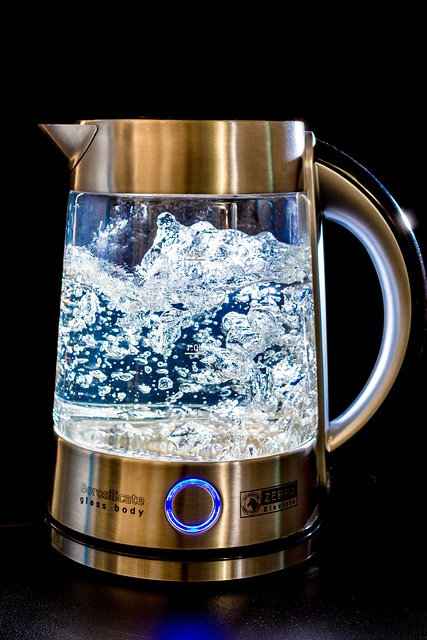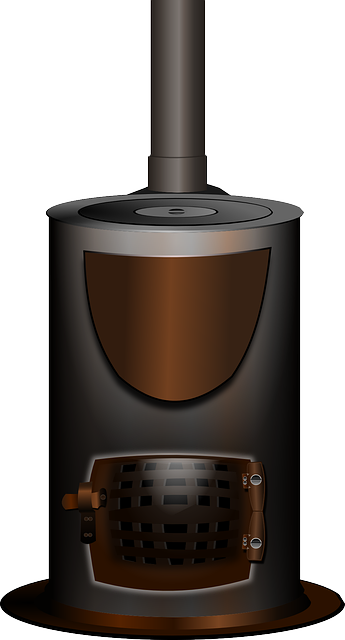Regular water heater maintenance, tailored to tank or tankless models, ensures optimal performance and longevity. For tanks, focus on preventing mineral buildup; for tankless heaters, ensure proper pressure relief valves and connections. Key tasks include annual inspections for damage, leaks, ventilation, and clearances, as well as flushing, thermostat checks, and replacing components. Early detection of issues through routine inspections prevents major repairs. Professional maintenance by licensed plumbers prolongs lifespan and avoids costly repairs.
Looking to keep your hot water flowing smoothly? This ultimate guide delves into the essential aspects of water heater maintenance. From understanding different types and basic care practices to regular tasks for optimal performance, it covers all you need to know. Learn how to troubleshoot common issues and when to call a professional. With these tips, ensure your water heater serves you well, maintaining consistent access to hot water for years to come.
- Understanding Your Water Heater: Types and Basic Care
- Regular Maintenance Tasks for Optimal Performance
- Troubleshooting Common Issues and When to Call a Professional
Understanding Your Water Heater: Types and Basic Care

Understanding your water heater is the first step in efficient water heater maintenance. There are primarily two types: tank and tankless. Tank heaters store hot water, making it readily available but requiring space and regular maintenance, including draining and flushing to remove mineral buildup. Tankless heaters, on the other hand, heat water on demand, saving space and energy, but necessitate periodic inspection for leaks and proper gas or electric supply.
Regular care involves checking for any signs of damage or leaks, ensuring proper ventilation, and maintaining a safe clearance around the heater. For tank heaters, annual flushing and draining are crucial to prevent mineral sediment buildup that can reduce efficiency and even cause failure. Tankless heaters also benefit from occasional checks on pressure relief valves and connections to ensure optimal performance and longevity.
Regular Maintenance Tasks for Optimal Performance

Regular water heater maintenance is essential for optimal performance and longevity. Some key tasks include flushing the heating element or dip tube to remove mineral buildup, which can reduce efficiency and cause premature failure. This process involves shutting off the gas or electricity, draining the tank, and cleaning any debris or sediment.
Additionally, checking and replacing the thermostat ensures your water heater maintains the desired temperature efficiently. Over time, the thermostat can become less accurate, leading to unnecessary energy usage. Regular inspection also allows you to identify potential issues like leaks, corrosion, or rust, which can be addressed promptly to prevent major repairs or replacements.
Troubleshooting Common Issues and When to Call a Professional

If your water heater isn’t performing optimally, don’t panic. Many common issues can be easily troubleshooting and resolved with basic maintenance. First, check for simple fixes like a faulty thermostat or a loose hot water pipe. Sometimes, a simple reset of the heater can resolve problems. If these quick checks don’t work, pay attention to recurring symptoms. A constant need for hot water, warm instead of hot water, or an unusual noise coming from the unit could indicate more serious issues that require professional attention.
When in doubt, it’s always best to call a licensed plumber or water heater technician. They have the expertise and tools to diagnose complex problems accurately and offer safe, effective solutions. Regular water heater maintenance is key to extending its lifespan and avoiding costly emergencies. Timely professional intervention can prevent minor issues from escalating into major repairs or even replacement.
Proper water heater maintenance is key to ensuring consistent hot water and extending the life of your appliance. By regularly performing basic care tasks and staying vigilant for common issues, you can prevent costly repairs or replacements. Remember, a well-maintained water heater means no more cold showers and peace of mind knowing your hot water supply is reliable. Incorporate these tips into your routine to keep your water heater running smoothly.
